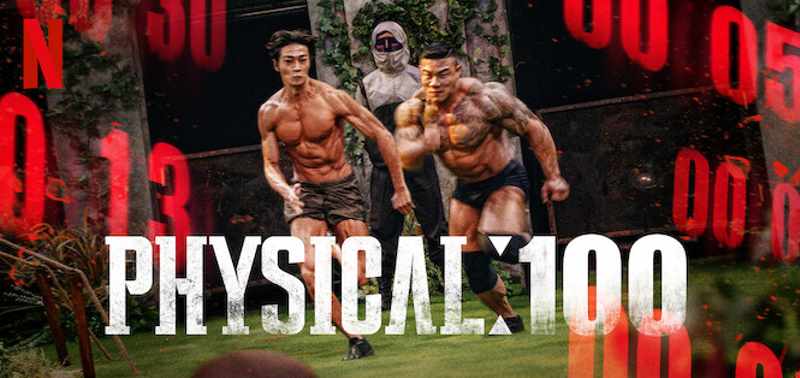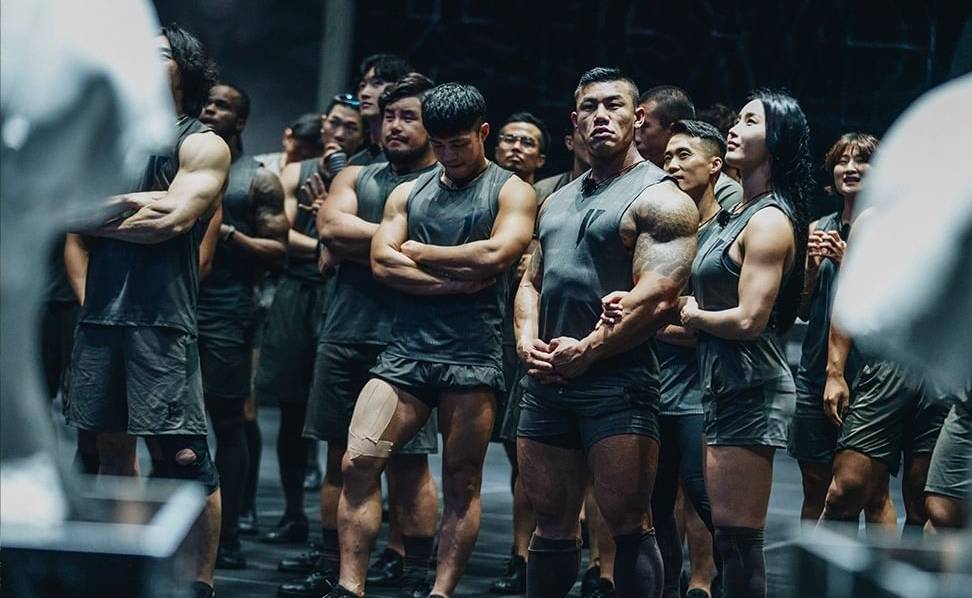In recent years, we’ve seen a new phenomenon in the world of TV that seems to have culminated with Netflix’s viral hit from South Korea, “Physical: 100” (피지컬: 100 | 넷플릭스). What’s remarkable about South Korea’s reality TV show “Physical: 100 (피지컬: 100)” from Netflix is that we’re now seeing a new level of athleticism and masculinity being showcased to a global audience. This is a game changer, particularly for Asian men, who have long struggled with stereotypes and prejudices that cast us in a less-than-masculine light.
The popularity of “Physical 100 (피지컬: 100)” has sparked a newfound interest in Korean masculinity, which has traditionally been viewed as small, weak, and passive. This show, however, challenges those stereotypes. It is by showcasing a diverse range of muscular, athletic, and confident Asian men. These contestants, who come from all walks of life, are breaking down the barriers that have traditionally kept Asian men from being viewed as desirable and confident.

What Is “Physical: 100 (피지컬: 100)” Reality TV Show about?
Basically, the show “Physical 100 (피지컬: 100)” is a real survival series that features 100 contestants (men and women, Korean and non-Koreans alike) in peak physical shape, who compete in a series of grueling tests of strength and endurance. Over nine episodes, viewers are treated to an unreal display of brawn and muscle, as the contestants tout their strength in challenges such as dangling from a bar suspended above a pool to traditional forms of Korean wrestling.
The show has received a lot of buzzes and looks to be a veritable Squid Games-like hit. Not just from Asian audiences, but from Western audiences as well. And not just among women who have been melting into thirst puddles for the male Korea athletes on the show, but also among both American white and black men who are envious and jealous of the perceived hyper-masculinity and musculature of the Korean contestants. Many are inspired to compete and go to the gym more in viral TikTok videos.
Asian men in western societies have long been emasculated and dehumanized. We have been viewed as effeminate, weak, and passive, which has led to a widespread belief that Asian men are not attractive or desirable. This perception has been fueled by Hollywood, which has consistently cast Asian men in supporting roles and portrayed them as nerdy, weak, or effeminate. This has had a profound impact on the self-esteem and confidence of Asian men, who have struggled to shake these damaging narratives.
But with shows like “Physical 100 (피지컬: 100)”, we’re starting to see a shift in perception. While it isn’t unknown for the occasional white, black or Hispanic woman to thirst for a KPop idol or KDrama actor, it’s notable that male Western audiences couldn’t care less. White men aren’t threatened by the K-pop idol, finding them mostly effeminate.

Except for the “Physical: 100 (피지컬: 100)” where white males (black and Latino men for that matter), which has induced both jealousy and inspiration because of this new introduction of Asian manliness. For the first time, Asian men are being presented as strong, athletic, and, yes, masculine. This is a game changer, and it couldn’t come at a more important time.
How “Physical: 100 (피지컬: 100)” Is Changing People’s Perception In The West
@abcs.of.attraction Netflix’s Physical: 100 finale episode airs for season 1, let’s talk about South Korea’s fitness influencer and muscle culture is showcasing a new form of Asian male physique and aesthetic. See our YouTube for full episode. #physical100 #physical100netflix #physical100finale #physical100episode9 #yunsungbin #agenth #bodybuilding #aesthetics #asianbodybuilder #choosunghoon #physical100challenge #physical100edit #physical100review #physical100show #physical100boatchallenge #physical100hangingbar ♬ Sza big boy – Ken
In the West, we’ve seen a rise in white supremacist groups who are using these negative stereotypes to dehumanize and marginalize Asian men. This has only been exacerbated by the ongoing COVID-19 pandemic, which has led to an increase in anti-Asian sentiment. But with shows like “Physical: 100 (피지컬: 100)”, we’re starting to see a new narrative emerge. One that showcases the strength and athleticism of Asian men, and one that challenges the harmful and harmful stereotypes that have been used to marginalize and demean them for far too long.
However, “Physical: 100” is changing all of that. By showcasing a diverse range of muscular, athletic, and confident Asian men, the show is helping to break down the harmful stereotypes that have held Asian men back for so long. It is also helping to boost the confidence of Asian men who have been made to feel inferior because of their race. By seeing men who look like them being celebrated for their strength and athleticism, Asian men are finally starting to feel like they have a place in the world.
The impact of “Physical: 100 (피지컬: 100)” is being felt beyond the screen as well. As the show continues to gain popularity, we’re starting to see a shift in the way that people think about Asian men. No longer are they cast as nerdy, effeminate sidekicks who lack the strength and athleticism of their Western counterparts. Instead, they’re being seen as strong, capable, and masculine. This is a game changer, and it’s long overdue.
So why is “Physical: 100 (피지컬: 100)” so important for Asian men? For one, it provides a much-needed counter-narrative to the harmful stereotypes that have plagued them for far too long. By showcasing the strength and athleticism of Asian men, the show is helping to challenge these harmful and dehumanizing narratives. It’s also providing a much-needed boost to the self-esteem and confidence of Asian men, who have struggled to shake the damaging effects of these negative stereotypes.
It is important to note that this newfound interest in Korean masculinity is not just limited to “Physical: 100 (피지컬: 100).” There is a growing trend of Asian men embracing their strength and athleticism, and they are no longer afraid to show it off. Whether it is through bodybuilding, martial arts, or other forms of physical fitness, Asian men are reclaiming their masculinity and proving to the world that they are just as strong and capable as any other race.

Korean Fitness Influencer & Muscle Culture Is Becoming A THING.
Additionally, the show is helping to increase representation and visibility for Asian men. For years, they’ve been underrepresented in Hollywood and in the media, which has only served to perpetuate the harmful stereotypes that have been used to demean and marginalize them. But with shows like “Physical: 100 (피지컬: 100)), we’re starting to see a shift. We’re starting to see Asian men represented in a more positive light, and we’re starting to see them portrayed as strong, capable, and masculine.
In conclusion, “Physical: 100 (피지컬: 100)” is a groundbreaking show that is changing the game for the perception of Asian men around the world. By showcasing a diverse range of muscular, athletic, and confident Asian men, the show is helping to break down harmful stereotypes and boost the confidence of Asian men everywhere. Whether you are an Asian man looking for inspiration or simply someone who loves great television, “Physical: 100 (피지컬: 100)” is a must-watch. So what are you waiting for? Turn on Netflix and get ready to see a side of Asian masculinity that you have never seen before.
